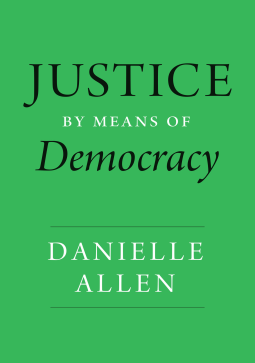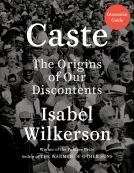
Justice by Means of Democracy
by Danielle Allen
This title was previously available on NetGalley and is now archived.
Send NetGalley books directly to your Kindle or Kindle app
1
To read on a Kindle or Kindle app, please add kindle@netgalley.com as an approved email address to receive files in your Amazon account. Click here for step-by-step instructions.
2
Also find your Kindle email address within your Amazon account, and enter it here.
Pub Date Apr 28 2023 | Archive Date Apr 01 2023
Talking about this book? Use #JusticebyMeansofDemocracy #NetGalley. More hashtag tips!
Description
At a time of great social and political turmoil, when many residents of the leading democracies question the ability of their governments to deal fairly and competently with serious public issues, and when power seems more and more to rest with the wealthy few, this book reconsiders the very foundations of democracy and justice. Scholar and writer Danielle Allen argues that the surest path to a just society in which all are given the support necessary to flourish is the protection of political equality; that justice is best achieved by means of democracy; and that the social ideals and organizational design principles that flow from recognizing political equality and democracy as fundamental to human well-being provide an alternative framework not only for justice but also for political economy. Allen identifies this paradigm-changing new framework as “power-sharing liberalism.”
Liberalism more broadly is the philosophical commitment to a government grounded in rights that both protect people in their private lives and empower them to help govern public life. Power-sharing liberalism offers an innovative reconstruction of liberalism based on the principle of full inclusion and non-domination—in which no group has a monopoly on power—in politics, economy, and society. By showing how we all might fully share power and responsibility across all three sectors, Allen advances a culture of civic engagement and empowerment, revealing the universal benefits of an effective government in which all participate on equal terms.
Available Editions
| EDITION | Other Format |
| ISBN | 9780226777092 |
| PRICE | $27.50 (USD) |
| PAGES | 288 |
Available on NetGalley
Average rating from 2 members
Featured Reviews
 E W P, Reviewer
E W P, Reviewer
Danielle Allen’s Justice by Means of Democracy is a timely book about the importance of ensuring the right to/opportunity for political participation as a necessary condition of justice and human flourishing. She is, in particular, concerned about what she sees as a “ramifying mistake” and “20th century blindspot” in the Rawlsian model of basic liberties and subsequent economics-based theories. Specifically, she seeks to re-establish positive liberties alongside negative liberties as "non-sacrificiable." She argues for a principle of “difference without domination” instead of Rawls’s difference principle, seeking to ensure political equality and to enfranchise all members of society in political participation that allows them personal autonomy/self-determination and the ability to help guide the society of which they are part. Her command is capacious and her argument brings in along the way interesting observations about topics such as the lacuna in Posner’s Bowling Alone theory of diminished social capital (which did not account for court decisions prohibiting single-gender membership of organizations such as the Rotary club as a factor participation declines), significant differences in political engagement between two highly educated groups (humanities majors vs. STEM majors), intentional dilution of labor’s/unions' influence through increased reliance on immigrant labor that is excluded from political participation, and the importance of “listening to strangers” and civil disagreement--understanding that “we need to call each other in, not out” when we encounter the fallibility of others acting in good faith. A distinguished scholar, Allen (Conant University Professor and director of the Safra Center for Ethics at Harvard) makes her work remarkably accessible to non-academics.
Readers who liked this book also liked:
We Are Bookish
LGBTQIAP+, Romance, Sci Fi & Fantasy
Keisha Lance Bottoms
Biographies & Memoirs, Nonfiction (Adult), Self-Help
Kelsey Barnard Clark
Cooking, Food & Wine, Entertainment & Pop Culture, Home & Garden
Elizabeth McKeon; Ralph Gevirtz; Julie Bandy
Biographies & Memoirs, Cooking, Food & Wine

















